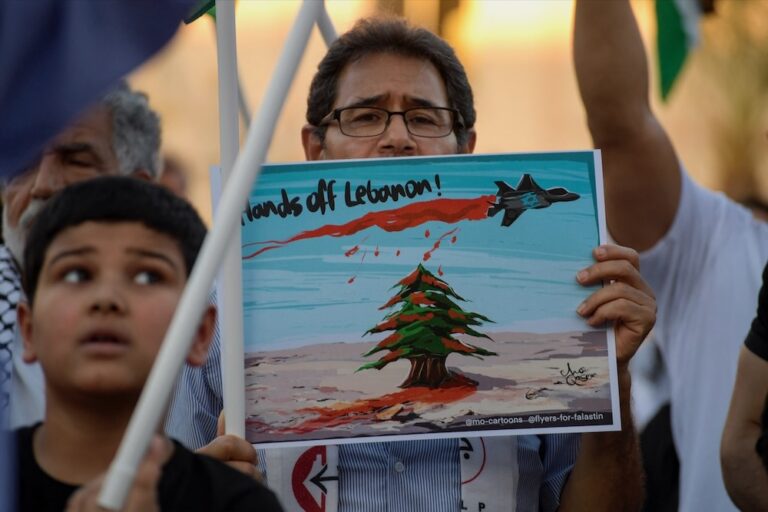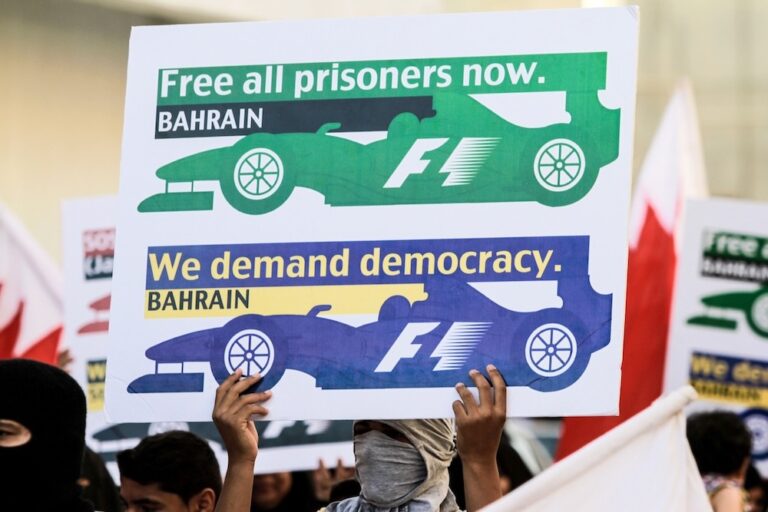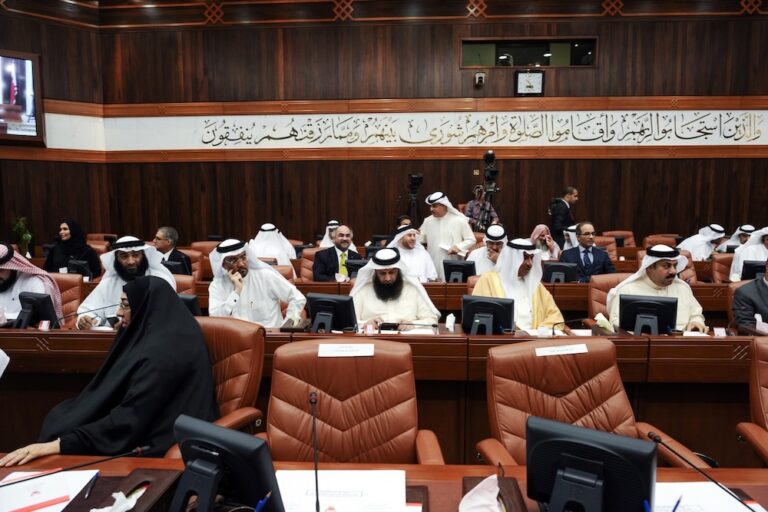On 20 July 2014, the Ministry of Justice announced that it has filed a lawsuit to suspend the activities of Al Wefaq National Islamic Society for three months.
The Bahrain Center for Human Rights (BCHR) expresses grave concern towards the Bahraini government’s recent move of further violating the right to association by launching a lawsuit to suspend Al Wefaq, the main opposition political party in Bahrain.
On 20 July 2014, the Ministry of Justice, Islamic Affairs and Endowments announced that it has filed a lawsuit to suspend the activities of Al Wefaq National Islamic Society for three months “until it rectifies its illegal status following the annulment of four general assemblies for lack of a quorum and the non-commitment to the public and transparency requirements for holding them.”
The Ministry has also accused Al Wefaq of allegedly establishing a committee to appoint high-level posts in the organization, which “is contrary to the foundations of democratic practices and imposes limits on the will of the general assembly.” BCHR believes that the society is being targeted for its opposing views and as a consequence of its meeting with Tom Malinowski, the U.S. Assistant Secretary of State for Democracy, Human Rights, and Labor.
On 6 July 2014, Malinowski met with members of Al-Wefaq at a public Ramadan reception held at the society’s headquarters. The next day, the Bahraini Ministry of Foreign Affairs declared that Malinowski was “unwelcome and should immediately leave the country, due to his interference in its internal affairs.”
Additionally, Al-Wefaq general secretary Ali Salman and his deputy Khalil Al-Marzooq were interrogated on 10 July 2014 at the public prosecution concerning their meeting with Malinowski and were charged with “violating the 2005 Law for Political Societies.”
Earlier in June 2014, the Bahraini House of Representatives approved amendments to the Law of Political Societies that require political groups to secure government permission in advance of meetings with foreign diplomats in Bahrain and abroad and to also be accompanied by a Foreign Ministry representative in such meetings.
The lawsuit to suspend Al-Wefaq is yet another manifestation of the regime’s attempt to silence the opposition’s voices in Bahrain based on laws that have been set to restrict basic freedoms, including the right to association in article 20 of the Universal Declaration of Human Rights, which states that “everyone has the right to freedom of peaceful assembly and association.”
This is not the first time the authorities have targeted the opposition societies, especially Al-Wefaq, which is considered the largest political society in Bahrain. On 14 April 2011, the Minister of Justice announced the decision to refer Al Wefaq to court in order to dissolve it along with the opposition group Islamic Action Society (AMAL), but the decision was withdrawn under international pressure.
Al Wefaq has previously been subjected to political harassment that has escalated since the beginning of the pro-democratic movement in Bahrain. Five of the elected municipality’s representatives who are also members of Al-Wefaq had their memberships in the municipalities revoked in votes conducted in 2011, due to the building support for the popular movement that began in February 2011.
Following the March 2011 crackdown on pro-democracy protests in Bahrain, the general secretary has been summoned for interrogation several times, including at a military prosecution due to his speeches and the society’s activities. The deputy was detained for a month in 2013. Also, the society’s printed publications have been prohibited since September 2010 on orders of the Information Affairs Authority. The society headquarters has also been subjected to attacks, most recently in March 2014 when masked men armed with knives attacked the building and broke the windows.
Al Wefaq also organized an exhibition that presented the personal artifacts of those who have died as a result of the government’s excessive use of force since the protests started in Bahrain on 14 February 2011. The exhibition displayed photographs of those who died as a result of injuries sustained from the police as well as physical evidence of the ammunition used by the regime in their violent crackdown. The exhibition was destroyed by police forces on 30 October 2013 without a warrant and the general secretary was interrogated and charged with “insulting a governmental body.”
BCHR believes that the move to suspend the political society only emphasizes the continued attacks on freedom of association and the government’s intention to silence and marginalize opposing voices. The Ministry of Justice has previously dissolved the Islamic Action Society (AMAL) and the highest religious foundation that represents the Shiite sect in the country, the Olamaa Islamic council, cancelled the elections and replaced the board of the Bahrain Lawyers Society, and suspended the secular moderate political society, Wa’ad society between April-June 2011, allegedly for statements “defaming the military and security forces.”
Officials shut down Wa’ad headquarters and blocked its website. Wa’ad headquarters was subjected to multiple arson attacks, vandalism, and theft but no perpetrator was held accountable for it. Its general secretary Ebrahim Sharif is currently detained and sentenced to five years in prison by a military court for an alleged “attempt to overthrow the regime.”
In a report examining the restraints on freedom of association in Bahrain, Human Rights Watch found that the restrictive laws and policies stifle civic and political groups and trade unions. The report details how the Bahraini authorities use unjust laws to restrict freedom of association by arbitrarily rejecting registration applications and interfering with independent organizations: “The government takes over and dissolves – more or less at will – organizations whose leaders criticize government officials and policies, and severely limits the ability of groups to raise money and to receive foreign funding.”
Despite this, the Bahraini House of Representatives is currently reviewing a new, more restrictive draft of the current Association Law.
Based on the above, The BCHR calls on the United States, the United Kingdom, the United Nations, the European Union and all close allies and international institutions to put pressure on Bahraini authorities to:
- Stop to all forms of harassment – including administrative and judicial harassment – against Al-Wefaq and cancel the decision to suspend its activities;
- Immediately end all procedures and actions aimed at restricting or hampering freedom of association in Bahrain;
- Respect Bahraini citizens’ freedom to the right to associations and uphold their commitment to international agreements that ensure that right, particularly the Universal Declaration of Human Rights and International Covenant on Civil and Political Rights.


